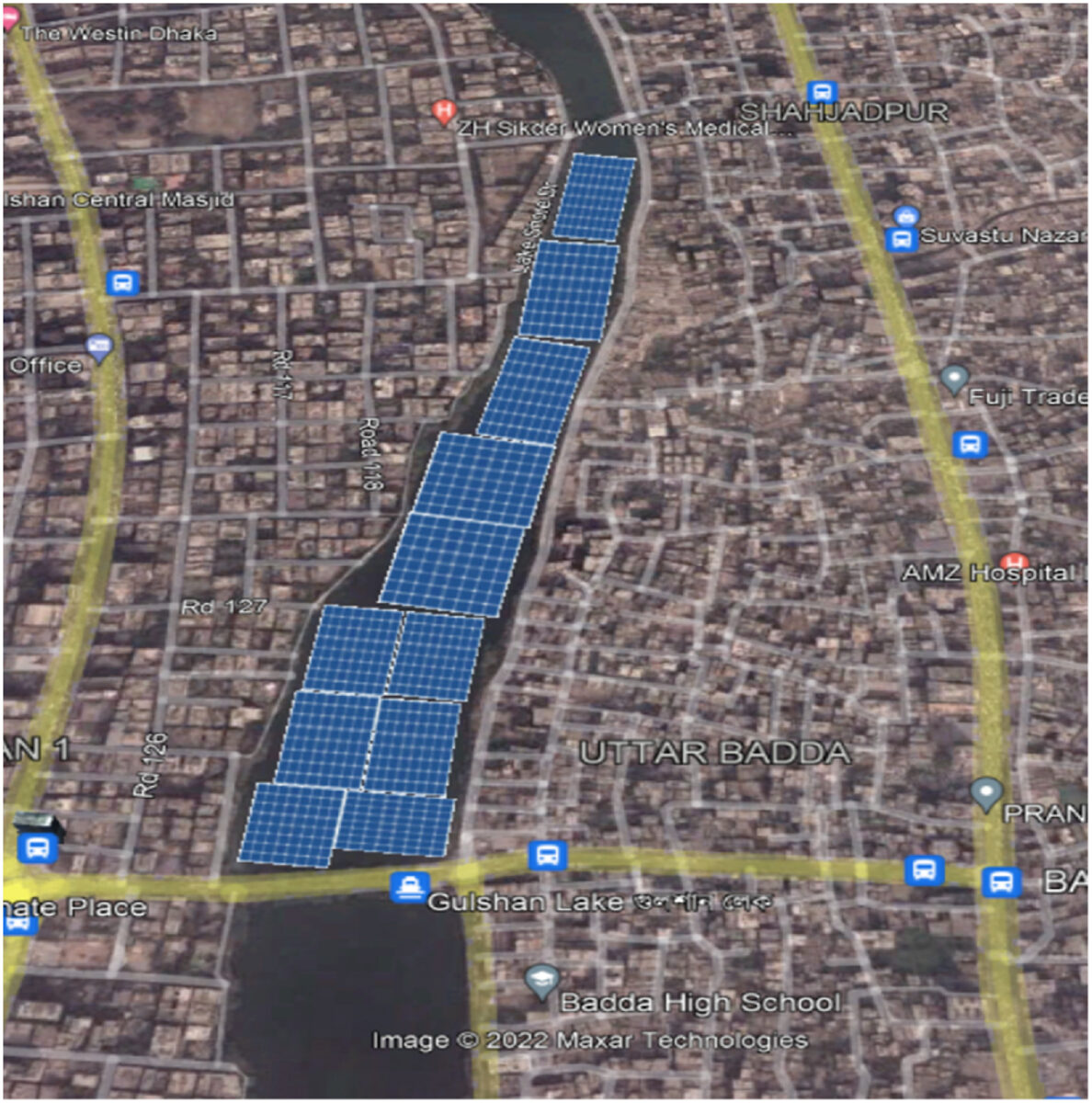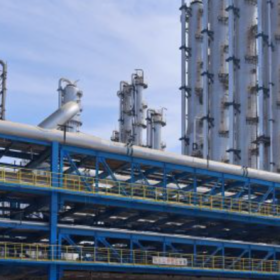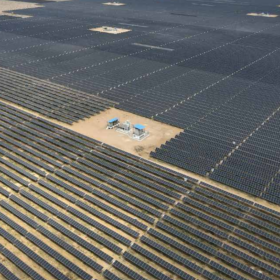From pv magazine Global
Researchers at the Bangladesh University of Engineering and Technology have conducted a techno-economic analysis to assess their country’s potential for floating solar development based on a selection of water bodies.
“The approach for FPV plant assessment is utilized on seven artificial lakes across different regions of Bangladesh,” the scientists stated, noting that the proposed methodology can reportedly be generalized and can be applied to any potential floating PV plant evaluation. “Each plant’s viability is extensively assessed in terms of power generation, economic impact, and contribution to the national grid.”
The proposed approach works through the following six steps: 1) Selection of water bodies; 2) Selection of PV panels; 3) Calculation of generated power; 4) Plant design; 5) Economic Analysis; 6) Comparison with ground-mounted PV plants.
The team also specified it took a “conservative approach” as it considered 15% of the total lake area for the floating PV installation. “However, study was also conducted for 20% and 25% of the total area keeping future expansion of the plant in mind,” it added.
In their analysis, the academics considered three water surfaces in the area of the country’s capital Dhaka – the Dhanmondi Lake, the Hatirjheel Lake, and the Gulshan Lake. “These are the only man-made water bodies in the capital,” they specified.
They also took into account the Joydia Baor, Bukhbhara Haor, and Barapukuria Lakes located outside Dhaka and said these lakes were recommended by the Asian Development Bank (ADB) as potential sites for floating solar.
They used PVGIS-SARAH, a global solar irradiation database, to determine the installed capacity, the required surface, and the panel efficiency of a floating project. They found that, among the three lakes in Dhaka, Hatirjheel Lake has the potential to generate the highest amount of electricity at 19.3 MW and Dhanmondi Lake has the least at 5.1 MW, while the Gulshan Lake may achieve 17.1 MW.
As for the other lakes, they found that the Joydia Baor may deploy a floating PV capacity of 34.30 MW, with Bukhbhara Haor and Barapukuria Lakes reaching 34.07 MW and 17.43 MW, respectively.
“The findings indicate that the proposed plants in Dhaka could meet 1.1% of the city’s entire demand, and that those in Kaptai Lake could satisfy 7% of Chattogram, the country’s port city,” the scientists emphasized. “In terms of the economic evaluation (LCOE, NPV, and IRR), each of the proposed plants demonstrates project viability following implementation.”
The academics also said that the simulated floating PV plants showed superior generating capabilities compared with ground-mounted PV plants. The latter are said to have the potential to generate 4.0 kWh/m2 to 6.5 kWh/m2 on a daily basis, while floating PV plants may achieve up to 8.3 kWh/m2. “Although the proposed FPV plants initially cost more than inland PV plants, the projected plants have superior generating capabilities and profitability than the inland counterparts,” they concluded.
Furthermore, the researchers found that the levelized cost of energy of floating solar plants located in the seven analyzed lakes may range from $0.0341/kWh (Gulshan) to $0.0486/kWh (Dhanmondi).
Their findings were presented in the study “Techno-economic assessment of power generation potential from floating solar photovoltaic systems in Bangladesh,” published in Heliyon.
This content is protected by copyright and may not be reused. If you want to cooperate with us and would like to reuse some of our content, please contact: editors@pv-magazine.com.








By submitting this form you agree to pv magazine using your data for the purposes of publishing your comment.
Your personal data will only be disclosed or otherwise transmitted to third parties for the purposes of spam filtering or if this is necessary for technical maintenance of the website. Any other transfer to third parties will not take place unless this is justified on the basis of applicable data protection regulations or if pv magazine is legally obliged to do so.
You may revoke this consent at any time with effect for the future, in which case your personal data will be deleted immediately. Otherwise, your data will be deleted if pv magazine has processed your request or the purpose of data storage is fulfilled.
Further information on data privacy can be found in our Data Protection Policy.